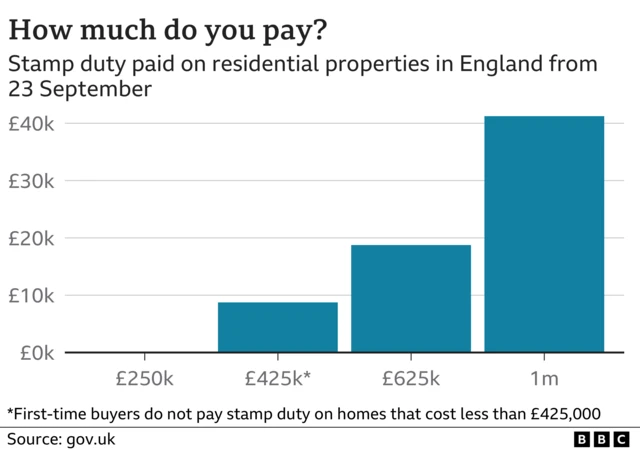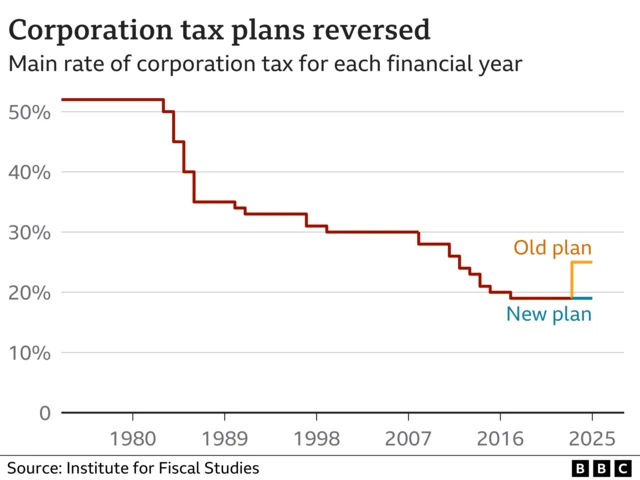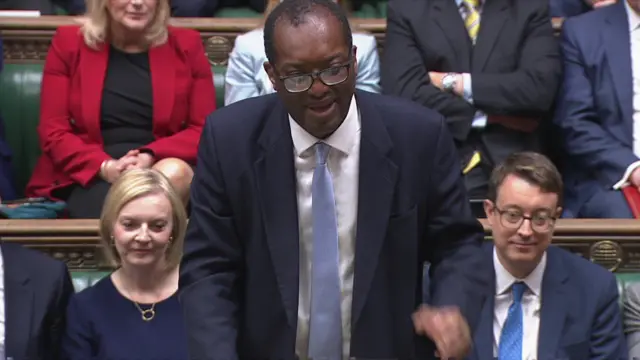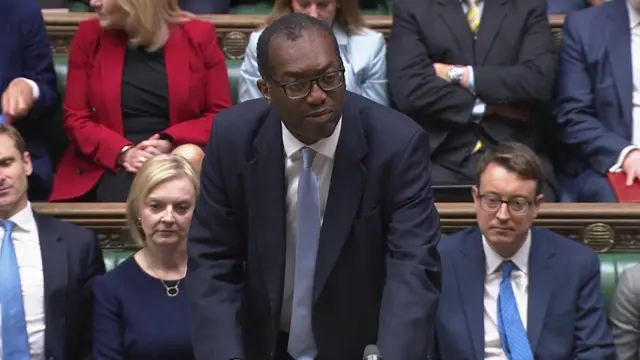The rabbit out of the hatpublished at 10:03 BST 23 September 2022
 Nick Eardley
Nick Eardley
Political correspondent, at Westminster Hall
The government is bringing forward its plan to cut the basic rate of income tax by a year.
But the decision to scrap the additional rate of income tax is a big move. It will benefit those on the highest salaries.
The government will hope the measure get the economy moving and encourage high tax payers to the UK. Opposition parties will argue it's a tax cut for the rich.



